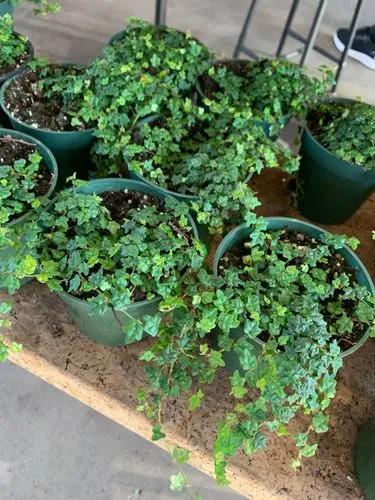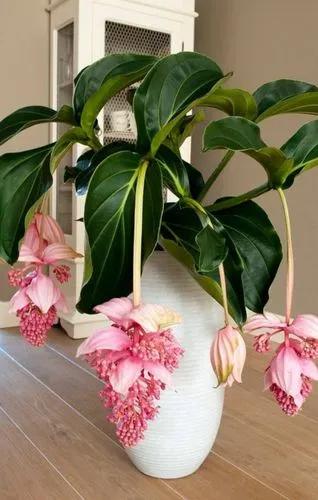In mythology, a gryphon is a creature with the head and wings of an eagle and the body of a lion. Don’t worry, Gryphon begonias don’t literally look like that – that would just be weird. So why is this begonia being named after a gryphon? It is because this begonia embodies the same underlying qualities that the mythical creature possesses, namely its majestic beauty, strength and durability. Alternately known as Pegasus™ in some sectors, the Gryphon begonia (USDA hardiness zone 11-12) strikes a dramatic pose and adds a tropical flair to any shade garden or container planting. Gryphon begonia is prized mainly as a foliage plant because it seldom blooms – the appearance of bright pink flowers may only happen when grown under a day length of eleven hours or less. This plant is universally described as having 10-inch (25 cm.) wide, thick, glossy deeply cut star- or maple-shaped leaves. Its mounds of leaves are variegated silver and green with a hint of maroon in the veins and a maroon underside. It reaches a height of 14-16 inches (36-41 cm.) and spans 16-18 inches (41-46 cm.) across. And, as if this plant’s aesthetics weren’t enough to sell it, Gryphon begonia also boasts versatility as a “garden-to-house” plant, meaning it can easily transition from being an outdoor plant into an indoor houseplant and vice-versa. Care must be taken, however, to bring containers of this tender perennial inside before it is subjected to frost.
Begonia Gryphon Care
Begonia 'gryphon'



How to Care for the Plant

Water

From spring - fall you will need to water this plant often, especially while it's in bloom. Keep the soil moist to the touch slightly, but do not over-water. During winter cut down watering and allow the top soil to become dry to the touch before watering again.

Pruning

To keep your Begonia well formed and within the size you can manage indoors, prune back stems and pinch out stem tips that are growing too tall. Pruning will encourage new growth making the plant look much rounder and healthier.

Fertilizer

From spring - fall feed the plant while the soil is damp every 2 weeks. Use a high potassium diluted feed of 5-10-5. This seems to work well in keeping the leaves and flowers looking healthy

Sunlight

This plant is not in favor of direct sun. This is because the leaves are sensitive to getting scorched. In their natural habitat most Begonias grow under cover. Bright light is best and during the winter some morning or late afternoon sun is fine.

Soil

African Violet ready made potting soil works well. Otherwise use a rich soilless well draining potting mix.

Temperature

Average room temperatures of 55 - 75°F (13 - 24°C) are best suited for Begonias...and no less than 55°F.

Container

Clay pots work well because they tend to release moisture easier, preventing root problems from stagnant water. An added benefit of using a clay pot is it will keep the plant more sturdy once it matures in height and prevent it from toppling over.

Popularity

67 people already have this plant 14 people have added this plant to their wishlists
Discover more plants with the list below
Popular articles






